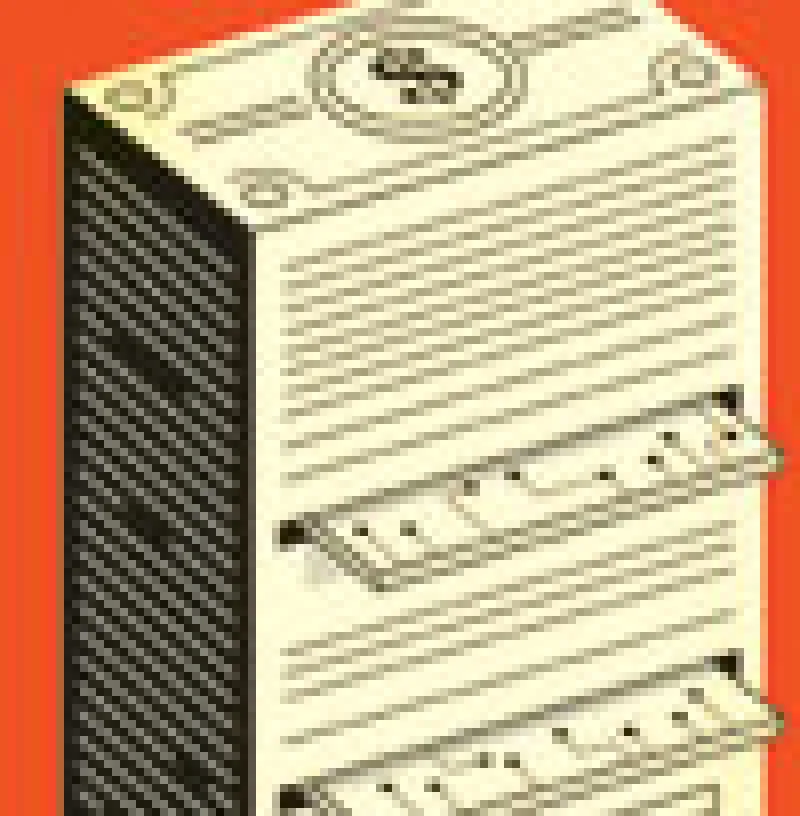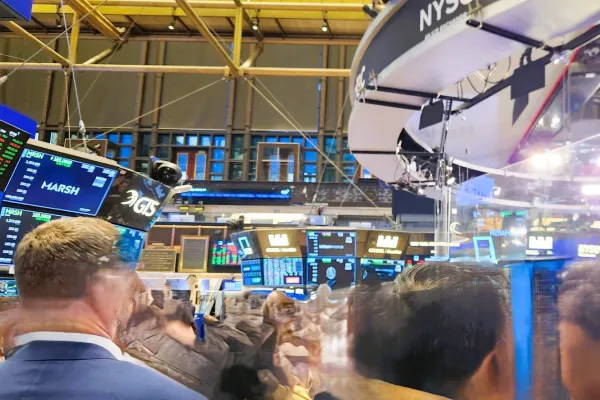In early October, as financial markets swung wildly — and mostly downward — software company Axioma set out in a new direction. Known for a decade as a supplier of portfolio-analysis and optimization systems to major financial institutions, the New York–based firm announced its first foray into the risk management market with a product dubbed Robust Risk Models.
That may strike a responsive chord with prospective investment management customers at a time when risk concerns are clearly front and center. The company also has the luxury of a financial cushion: $22.5 million raised in a financing led by New York private equity firm Salmon River Capital at the end of last year. But how much hope does Axioma or any other seller have, considering that the community of buyers is hopelessly depressed?
TABB Group, a Westborough, Massachusetts–based research firm focused on financial technology, estimates that the securities industry will cut tech spending next year by $4.3 billion, or 19.6 percent, to $17.6 billion. The bankruptcy of Lehman Brothers Holdings, which spent $2.5 billion annually on information technology, will slash that total by $1.5 billion as London-based Barclays consolidates its newly purchased Lehman assets, according to TABB. It also expects Bank of America Corp.’s integration of Merrill Lynch & Co. to result in as much as $2 billion worth of staff and systems cuts.
Axioma CEO Sebastian Ceria shrugs all that off. “This is an ideal environment for new technology,” he asserts. “Everybody is revisiting their decisions. It exposes what’s wrong with what they have. Legacy systems break down, people have to adapt quickly and look for innovation.”
Ceria may be contrarian, but he is far from alone. Many sellers of IT systems and products reason that the financial industry remains one of the biggest consumers of computing and communications systems and services. If organizations reduce workforces and want to do more with fewer resources, then technology has to be the solution. Dispositions are downright sunny at companies like the 80-employee Axioma that tend to be relatively small and entrepreneurial, privately held and serving well-defined niches such as risk, compliance or trading, where regulatory and competitive pressures underscore the need to invest.
“The quarter that finished in September was our best ever,” says Donal Byrne, CEO of Dublin-based Corvil, a 42-person company with a system for measuring and managing network latency delays. Its customers include Credit Suisse, Deutsche Börse, the London Stock Exchange and the Turquoise multilateral trading facility in London.
“We have software, it is global, and we can host it,” says Tim Geannopulos, executive vice president of global sales for Chicago trading systems provider Trading Technologies International, citing a steady stream of licensing deals with major banks in the burgeoning derivatives area. On October 21, TT said JPMorgan Chase & Co. would be distributing its order-entry software internally and to clients. Another multiasset trading systems vendor, London- and Paris-based SunGard Data Systems unit GL Trade, said it has signed 11 order management and smart-order-routing systems contracts over the past six months.
“Volatility is good for us,” says James Morrow, COO of Capital Institutional Services, a Dallas-based trading firm that in the midst of September’s market gyrations managed to move offices and install a new technology infrastructure, including order management systems from London’s Fidessa Group for equities and from Bloomberg for fixed income. Morrow says Capis’s equity volumes in October were triple what they were a year earlier, but thanks to technology the firm is keeping its staff at about 40.
New York–based treasury and trading systems company Wall Street Systems, which has 500 employees and is controlled by private equity firm Warburg Pincus, capped two years of infrastructure development last month with the launch of the Electronic Settlement Network, a posttrade utility for foreign exchange, cash and over-the-counter derivatives. “We are expecting a major banking industry consolidation, a move away from risky, toxic products and toward more-commoditized products that are low-margin with tight spreads,” says managing director of corporate development Larry Ng. “The industry will be very focused on cost, and our utility model will help second- and third-tier players compete against the few big firms that have economies of scale.”
There may be more good fortune to spread around: TABB Group expects that after 2009, tech spending will rebound for a few years at a compound annual growth rate of 3.3 percent, down from 10.6 percent in the mid-2000s.






